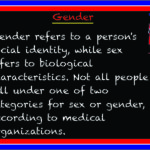The online space can be wonderful and liberating. I have been active online for over half of my life now, and I feel proud to have grown up in the digital age. But I would be lying if I said that there weren’t any cons. The online world gives us a lot to play with, but it also demands responsibility. It gives us the chance to choose any identity, which if and when abused, can be detrimental. Studies have proven social media networking sites, chat rooms, instant messaging to be the leading portals of online violence and bullying. I myself have been a victim of this. As technology becomes easily accessible for all, there is a higher chance for individuals to be victimized online.


We get so caught up in the liberty that the online space provides us with that we forget to use it with discretion. As easy as it is to be hurtful towards one another on an online platform, it is equally as easy to spread love. I feel that this can be more consciously reiterated in the online space. Various social media platforms can integrate self-love engagements for their audiences to do so. Twitter can begin a worldwide campaign where we tweet each other a compliment using the hashtag #promotelove. Facebook already creates customized slideshows and collages for its users on special occasions. It can also create and post customized positive messages on users’ walls, such as: ‘You are great at your job. You also take care of your family really well. We from Facebook are proud of you!’ By having such big names in the social media world consciously promote love and value for its consumers, the online space can become a much more positive space to be in.
Educational institutions need to incorporate sessions for students to understand the dangers of the online world, and how to use it responsibly. A lot of colleges and schools ban social media sites so as to curb usage. I don’t think that’s effective at all. The more you limit usage, the more an individual becomes curious to experiment with. Rather, by having interactive sessions during college fests in the form of workshops, street plays, short films, or more, students can be directly targeted. Colleges should also integrate courses about online violence into their curriculum.
In a rapidly growing digital world, the consumption of media content is shifting online as well. Over time, more and more online creators are dominating mainstream entertainment because people are always online to consume it. Creators have the beautiful ability to spread awareness about a topic in the form of entertainment. Most recently, AIB (All India Bakchod), a popular YouTube channel, did a humorous sketch on the meaning of depression and how society perceives it. Combining education with entertainment is one of the most genius ways to get people talking. That video quickly became viral as people starting spreading it across portals. There can be more content like this showcasing online violence and its effects in the form of web series, comedic sketches, and satiric rants.
Although I feel the younger generation is very active in the digital space, the older generation needs to become much more involved. Ultimately, to curb online violence, parents need to know how their kids are spending their time online. Cross integration between online and mainstream media such as television and newspapers will help spread the message to parents. Parents also need to make it a point to talk to their kids and nurture their interests and talents to help build their self-esteem and confidence. It’s what kids perceive about themselves as individuals that they project outwards, in this case online.
Ultimately, the online space is a unique playground that every individual is experimenting with today. With experimentation comes responsibility, and I feel these methods can help do so.




